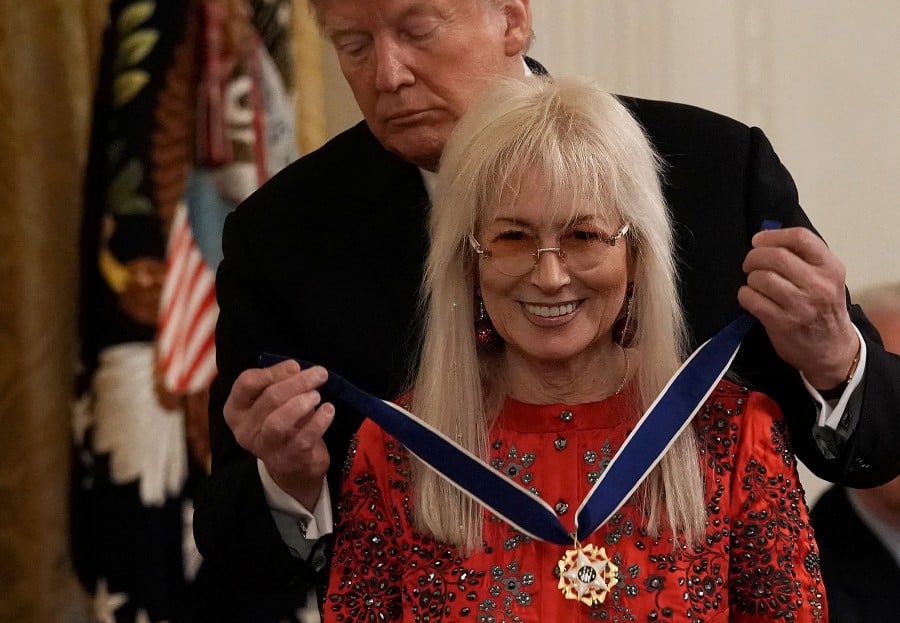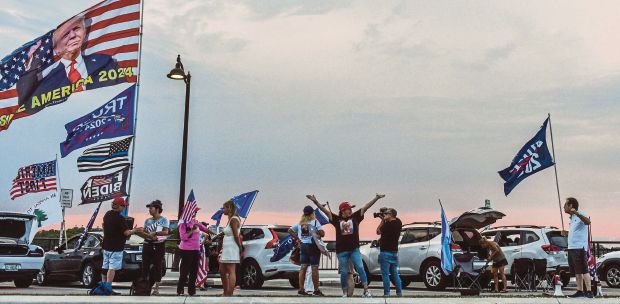In an electoral system in which money is the ultimate kingmaker, Donald Trump has been courting the country's billionaires -- and they have their checkbooks ready.
The ability of the 77-year-old presumptive Republican presidential nominee to raise money from average Americans is unchallenged, and his historic criminal conviction in New York has not dented the operation in the slightest.
Trump's campaign team says he raised more than US$53 million in the 24 hours after Thursday's verdict, which saw him found guilty on 34 felony counts of falsifying business records in a conspiracy to unlawfully influence the 2016 election.
But for big donors, the light had drained a bit from Trump's powerful aura in the wake of the chaos surrounding his 2020 loss at the polls to Joe Biden.
On January 7, 2021, the day after Trump's supporters ransacked the US Capitol, billionaire businessman and investor Nelson Peltz said he regretted backing the real estate mogul-turned-world leader.
"What happened yesterday is a disgrace. As an American, I'm embarrassed," the Trian Partners CEO told CNBC.
But little more than a year later, this past March, Peltz welcomed Trump to his Florida home for breakfast with other high-rollers, including Tesla, SpaceX and X boss Elon Musk, The Washington Post reported.
And in an interview with The Financial Times, Peltz said he'd "probably" vote for Trump again in November, while admitting: "I'm not happy about that."
Why? The 81-year-old Peltz cited an explosion in the number of migrants illegally entering the United States and the "really scary" mental health of Biden, who is also 81.
Steve Schwarzman, the billionaire chair and co-founder of the Blackstone Group, one of the world's most important investment firms, similarly slammed the events of January 6, condemning the "mob's attempt to undermine our Constitution."
But on May 24, the Wall Street power player also publicly endorsed Trump, likewise naming the crisis on the US-Mexican border as a key concern.
And Miriam Adelson, the widow of casino billionaire Sheldon Adelson and a major supporter of Israel, is planning to pour tens of millions of dollars into a huge political action committee for Trump, according to Politico.
During his first term, Trump awarded Miriam Adelson the Presidential Medal of Freedom.
With US stock markets routinely hitting record highs and the world's largest economy growing despite persistent inflation, why would business moguls back a convicted felon perceived as a source of national instability?
Economist Paul Krugman believes these heavyhitters are making their political picks based on personal interests, not the health of the nation.
"One straightforward answer is that the wealthy will almost certainly pay lower taxes -- and corporations will be less regulated -- if Trump wins than if Biden stays in office," the Nobel Prize-winning Krugman wrote in April in The New York Times.
Biden has made no secret of the idea that, should he be reelected and his Democrats win an outright majority in both houses of Congress, he will place a new tax on the super-rich.
In 2022, he tried to establish a minimum income tax for billionaires -- 20 per cent for those whose household income exceeds US$100 million, or just 0.01 per cent of the population. But his bill fizzled out.
Since succeeding Trump in 2021 in the Oval Office, Biden has regularly emphasized the need for more regulations in the world of finance -- which could explain why some mega-rich businessmen have not thrown their support his way.
The Biden administration's efforts to combat climate change also have made him less than popular with Big Oil.
"Trump's 'drill, baby, drill' philosophy aligns much better with the oil patch than Biden's green-energy approach. It's a no-brainer," Dan Eberhart, chief executive of the oil-field services company Canary, recently told The Washington Post.
Biden's campaign team regularly attacks his Republican rival's ties to the uber-wealthy, suggesting quid pro quos are expected.
"Trump's billionaire friends are propping up the campaign of a white collar crook because they know the deal -- they cut him checks and he cuts their taxes while working people and the middle class pay the tab," campaign spokesman Ammar Moussa said.
Of course, Biden is not exactly left out of the billionaire campaign donation lottery.
Vinod Khosla, the co-founder of Sun Microsystems and a major venture capitalist, recently organized a fundraising reception for Biden at his California home.
In the end, Wall Street and Big Oil are mainly in Trump's camp, while Silicon Valley tends to back Biden.
On November 5, voters -- perhaps influenced by ads paid for with millions of dollars of billionaire money -- will have the final say.
* The writer is from Agence France-Presse
The views expressed in this article are the author's own and do not necessarily reflect those of the New Straits Times





